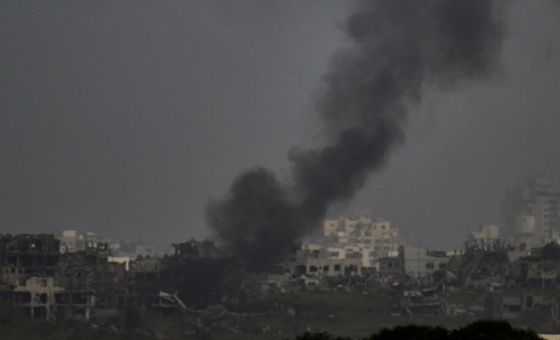This is the last article you can read this month
You can read more article this month
You can read more articles this month
Sorry your limit is up for this month
Reset on:
Please help support the Morning Star by subscribing here
Iranian Foreign Minister Mohammad Javad Zarif has said that a ministerial meeting with the P5+1 countries would be necessary following talks in Geneva over Tehran's nuclear programme.
The talks over the next few days will be between Deputy Foreign Minister Abbas Araqchi and his counterparts from the P5+1 group - the US, France, Britain, Russia, China and Germany.
"We want to change the approach of the past six years, which has given no results," said Mr Zarif.
Mr Araqchi did not give any further details but warned that uranium enrichment was still a "red line" for the republic.
"We will negotiate about the volume, levels and the methods of enrichment but shipping out the enriched material is a red line for Iran," he emphasised.
Iran has 6,774kg of low-enriched uranium and nearly 186kg enriched to 20 per cent, as well as 187kg of the 20 per cent material converted to uranium oxide for use in fuel plates.
It insists its nuclear programme is solely for peaceful purposes.
Western powers and Israel claim it is aimed at developing an atomic bomb as they claim it has produced more than the 240-250kg needed for one atomic bomb, which Tehran has repeatedly denied.
The two sides come to the negotiating table in Geneva today amid an improved atmosphere that began with the June election of Iranian President Hassan Rouhani.
Subsequent conciliatory comments by Iranian officials were capped last month by a phone call between Mr Rouhani and US President Barack Obama - the first conversation between US and Iranian leaders in more than three decades.
Iranian officials have said that their country is ready to meet some international demands to reduce its nuclear activities.
If so, the talks could be the launching pad for a deal aimed at reducing the amount and intensity of uranium enrichment.
Demands to reduce enrichment instead of stopping it implicitly recognise Iran's right to enrich for peaceful purposes.
That is already a victory for Tehran, considering that talks began 10 years ago with the international community calling on it to abandon the enrichment programme completely.









